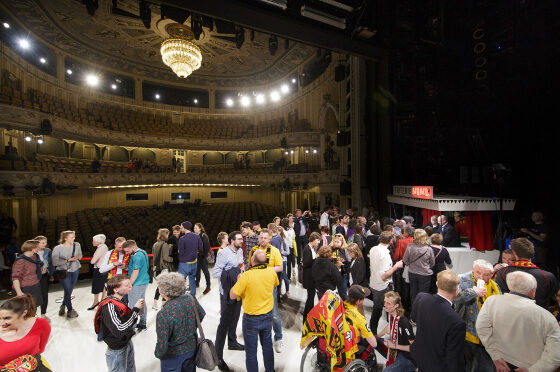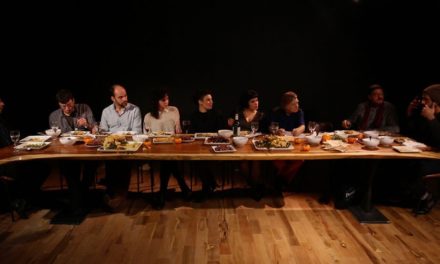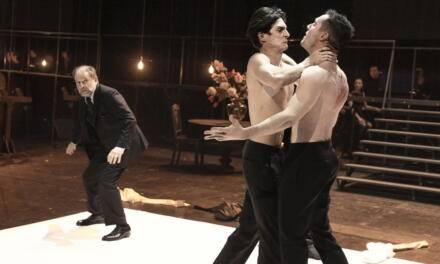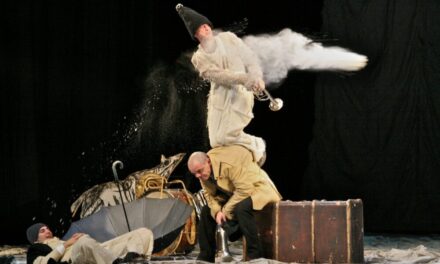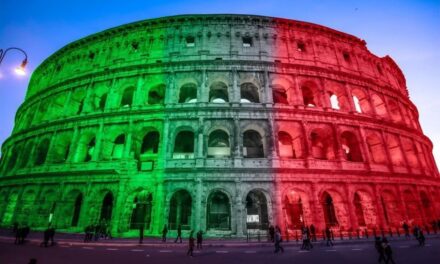Here, at the annual ‘Our Stage Festival’ in Dresden, the average citizen is the center of the performance. In other words, the non-professional actor mixes with the professional actor. It is putting people at its center, encompassing 11 performances from 10 different countries, including Hungary, Scotland, France and South Africa. Through this festival, the people of Dresden are receiving the message that we, the audience member, are interested in the stories of regular people. At the opening ceremony, speakers including Ulrich Khuon (President of Deutscher Buhnenverein), Dr. Eva-Maria Strange (Saxon Minister of State for Science and the Arts) and Miriam Tscholl (Festival Artistic Direction and Curation) put these ideas at the center of their opening remarks. The citizens of these performances are described as ‘experts of real life’.
This festival, now its fourth time in Dresden, is presented in conjunction with the ETC (European Theatre Convention, founded in 1998), and the articles in this series will focus on the events and history of the 2019 conference, held here in Dresden, towards the end of the week. The events of the festival were presented between the 18th and the 25th of May.
To Ulrich Khuon, President of Deutscher Buhnenverein, an aim is in place to create authenticity with the best definition of ‘documentary theatre’. All the performances that occur at this festival are centered on people who are not associated with the arts, and there should be applauded for bringing personal experiences into the game. He poses to us a statement, followed by a question: ‘I am a human, therefore, how can I say what it means to be European?’
For the remainder of this festival, there is going to be one question that will sit at its center: what is the exact definition of participatory theatre that does not console itself to the individual person, but the general collective? To the keynote speakers of this opening event, it is the adaptation to the world around you, and a form of thinking. All of us are part of a process, and we become richer through each other. How do we receive new thresholds in theatres? Does an inner-willingness exist in order to listen to others and perceive reality?
The general feeling for all the speeches is that theatre is a space for the in-between. We are not all of the specific titular roles. Our shared understanding comes from our experience of being human beings. Therefore, how can we alter the terminology? How can we make theatre WITH someone, and not FOR someone?
From a personal perspective, it seems hypocritical to be perceiving this from an environment that encompasses artists, or affiliates of the theatre, or those involved in some capacity with the performances. Making an appeal to some specific group of people has to be made specifically to that group of people, and not to those outside who are defenseless to making the change.
During the opening performances, a group of German citizens presented a series of performances that begged the question: who understands Europe? What we may come to understand is that ‘Europe’ is not just geographical or political, but is an idea in itself. The performers who have come together mark a definition to the participatory theatre, a body of people primarily built up of non-professional actors, but with a sincere and concise voice to question the fabric of Europe, and what it means to live within it.
I have often thought this as I have walked amongst the graffiti and tram lines of modern Europe growing up. There is a spirit of unity from a united history and political struggle that marks itself on the sociological discourse of the world. Towards the end of the performance, the participants imagine letters that they would write to Europe, asking the questions that they have always wanted to ask.
Perhaps this will encourage us to write our own letters to Europe. What would we say? As a Welshman who voted to remain in the referendum of 2016, I know exactly what stays on the tip of my tongue.
~The first performance of the festival is En Dynamei Theatre Ensemble & Eleni Efthymiou’s The Fan-Man, or How to Dress an Elephant, performed in Greek with an ensemble of actors at the Kleines Haus 1 in north Dresden: ‘a play about people and nightmares, full of monsters, ghosts and lions. A play about childhood, shaped by doctors, psychologists, kinesiology’s, speech therapists, drama therapists, music and color therapists, aromatherapists, neurologists, urologists, dieticians, orthopaedist, and homeopaths (…) the energy of the group is to deconstruct the stigma of being different.’
This is a performance with an ensemble of actors that also encompass actors of a physically and mentally challenged capability. Professional actors also highlight the many flaws in themselves, leveling any disability with the notion that flaws are not to be quantified in the same definition, however that humanity has flaws of its own that everyone can share.
This is a devised and highly-stylized performance based within a sparse stage with basic lighting. A cast of roughly 20 performances takes the audience on a journey through the notions of being different. The performance, which is divided into 19 different scenes, showed an open recognition that the play is about to begin in a kind of meta-theatrical prologue: but this is presented without the disabled members of the ensemble. Is this to allow them a more welcomed reveal, perhaps? The performance is described as one where the form and language of the evening are surreal. The category of ‘normal’ is suspended. In fact, we are encouraged throughout the evening to redefine the term normal, and not base it on certain body recognition that we have become socially inclined to.
There is a sense of asking what is the elephant in the room. In this case, the fact that some people are different from others in either a mental or physical capacity. Then, as the title suggests, how do you then address that? That is, you have to, at first, recognize it, but then openly acknowledge it and then, embrace it. Ultimately, what I gained from this performance, played by a blend of ordinary Greek citizens and professional actors, is that serious integration first must occur with an open-minded acceptance so that the ‘elephant’ is then removed.
~
The second performance of the evening, ‘Stadium’, is the creation of Mohamed El Khatib and Collectif Zirlib, performed in French at the Schauspielhaus in collaboration with the 53 RC Lens fans and guests from the Dynamo Dresden Fan club.
The performance-maker Mohamed El Khatib researched the Bollaert-Delelis a year before compiling this documentary performance described as: ‘embedded in stories about the love for the club, he addresses performers’ personal matters as well as political issues in the region. In the words of Giles Deleuze, what is the essential difference between a theatre audience and that of a football match?’
Split between a blend of video interviews and performance, the audience is guided through the spirit of the football club, and why its most dedicated fans are more poised to remark the sport as part of their way of life. As one fan describes in the performance: ‘without the club, I would die.’ The performance elements are curated by an interviewer who looks towards the fans to dissect their fandom, which is then in turn translated into German for the audience.
This is a performance that quizzes the nature of fan culture, but it does also question the nature of what it means to be an audience. How does the fabric and dynamics of the present audience within the performance change its dynamics? Even the skyping of fans from France into space dispensed the conventional notions of a theatrical space. But more importantly, the nature and love of the individual citizen are crucial to this performance. The integration of the real Lens fans made the piece so much more organic.
With a title such as Stadium, there is a sense that the chaotic and exciting energy of the stadium to be integrated, but it did not meet that definition. What must be encouraged though is the thought of how audiences of different cultural mediums are blended; how the audience of a football match is no different than the audience in the theatre. What is actively encouraged and questioned in this festival is the idea of participation (more on this later), and I had expected that perhaps the participation of the audience to somewhat as dynamic as of that in a football match.
Despite the draw to this performance, the advertisement of English surtitles was falsely represented, and the ‘performance’ aspects left untranslated. The very idea of the stadium, even in my own Wales following a home rugby game, has become what we might call ‘our stage’, but an alienation began to occur between who could understand the performance and who could not.
A sporting event affects the masses of everyday people in a positive way, and that voice of the citizen placed at its center is as important. This was certainly evident in the opening night party following the performance, where groups of Grecians, French and other nationalities danced together at the top of the Schauspielhaus. A remarkable feat.
For more information on the festival, please visit Festival page.
This post was written by the author in their personal capacity.The opinions expressed in this article are the author’s own and do not reflect the view of The Theatre Times, their staff or collaborators.
This post was written by Christopher Harris.
The views expressed here belong to the author and do not necessarily reflect our views and opinions.

